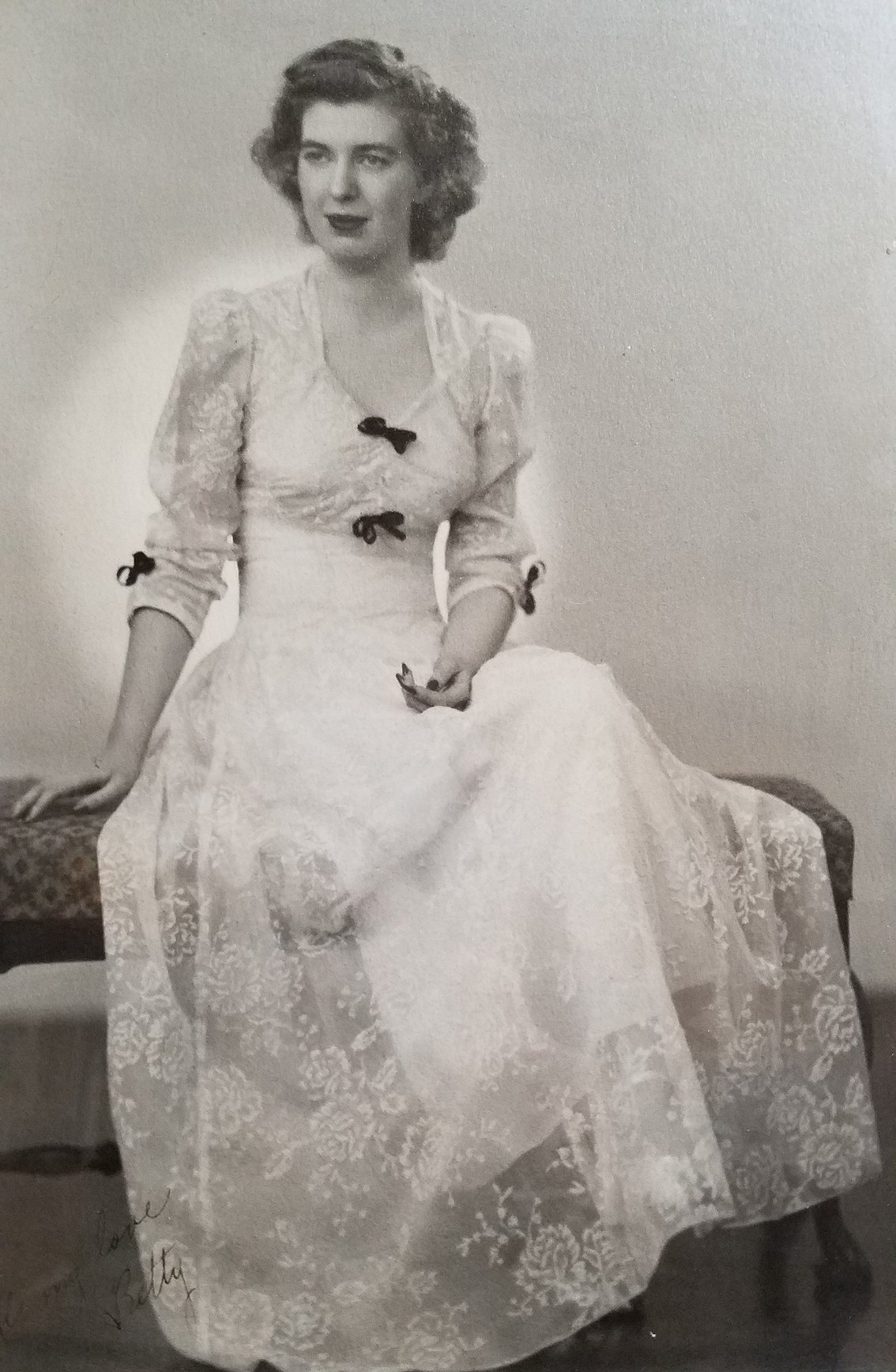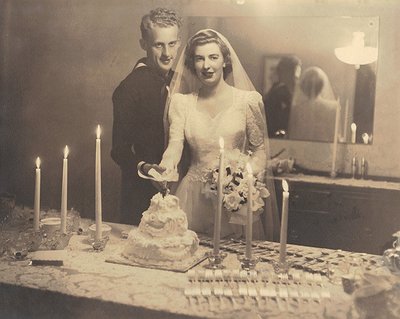Betty Wallschlaeger looks back on a century
JOEL MARTIN | Hagadone News Network | UPDATED 12 months AGO
Joel Martin has been with the Columbia Basin Herald for more than 25 years in a variety of roles and is the most-tenured employee in the building. Martin is a married father of eight and enjoys spending time with his children and his wife, Christina. He is passionate about the paper’s mission of informing the people of the Columbia Basin because he knows it is important to record the history of the communities the publication serves. | March 5, 2025 3:30 AM
EPHRATA — Betty Wallschlaeger got an early start.
“I was a 6-month baby, and I fit in the palm of (my mother’s) hand,” she said. “They didn't know how much I weighed because they didn't want to handle me too much. But I was in an incubator for eight weeks.”
Clearly, it didn’t slow her down much because she turns 100 years old March 24. She lives at Columbia Basin Hospital in Ephrata, in the community she’s called home since the 1950s.
Betty Prince, as she was called then, grew up in Seattle and graduated from Roosevelt High School, then the largest high school in the city. Her mother ran a rooming house for students at the University of Washington.
Betty had trouble with math, she said, and graduated by the skin of her teeth. She was already employed by then, though.
“The last year of high school, I went around to different businesses and put in my application for a job, and I got one at the phone company,” she said. “They had a mock switchboard in the basement of the building, and you went in and practiced that, and you did all the memorizing of the states and their capitals and that kind of stuff. The last six months of high school, I worked part-time and went to school part-time because I only needed three credits to graduate. I could go in the morning and then after lunch I went to the telephone company.”
It was the 1940s, and America was hard at work fighting World War II. Working for the telephone company brought some unexpected benefits, Betty said.
“They had two entrances to the building, one where the employees went in and out,” she said. “At the back entrance, sailors and soldiers were waiting for their girlfriends.”
One of her co-workers introduced her to a sailor, a young man named Robert Wallschlaeger, more often called Wally. Betty and Wally went out a couple of times before he had to go back to his ship, she said, then corresponded while he was at sea.
“When I saw his last name, I said, ‘Well, I would never want to marry anybody with a name like that,’” she said.
Wally was at sea for two years on the USS Enterprise, she said. In May 1945, with the war almost over, the Enterprise sustained a kamikaze attack at Okinawa and was sent to Bremerton for repairs. While the ship was in port, Wally and Betty were married in Betty’s mother’s living room by the ship’s chaplain.
“He said he had done a number of weddings, but ours was the nicest,” Betty said. “Because my mother had the dining room table with a wedding cake and silverware all nice.”
Just a few weeks after they were married, the war ended and the Wallschlaegers, armed with a box of sandwiches from Betty’s mother, got on a train to Wally’s hometown of Ripon, Wisconsin. The train was filled with servicemen, Betty said, and she was the only woman aboard.
Ripon wasn’t exactly the home of her dreams, Betty said. Housing was in short supply, so Wally’s parents let them move into the empty house his late grandparents had occupied.
“In the kitchen, there was a wood cook stove,” Betty said. “They had a bathroom and it had a bathtub in it, but they never hooked up the hot water … I got on that train and headed back to Washington, and it wasn't too long before he followed.”
In Seattle, the young couple found an apartment above a house, and Wally used his GI Bill to take classes in cabinetmaking at Edison Technical School. While he was there, he met Howard Randolph, who had a lumberyard in Ephrata. The lumberyard had a cabinet shop attached to it, but the cabinetmaker had passed away suddenly. The Wallschlaegers moved to Ephrata, and Karl’s Kabinet Shop became Wally’s Cabinet Shop.
During their years in Seattle, Betty and Wally had had four sons: Steve, Larry, Mark and Rex.
“(There) was a duplex that the Randolphs had that they we rented from them, and it only had two bedrooms,” Betty said. “We had two bunk bed sets, four kids in one bedroom.”
The family moved across the street into a house that was only slightly larger, Betty said, with a kitchen table so small they couldn’t all eat together. Finally, they moved a few blocks away to a four-bedroom. It was good that the house had some space because that was when Wally and Betty adopted their last child, their daughter Tracy.
Betty had a couple of jobs that didn’t last very long, she said, but mostly, she worked at making a home, raising her family and being active at Holy Trinity Lutheran Church. The Wallschlaegers were also avid square dancers, Betty said.
“For four years, we never missed a Saturday night square dance,” Betty said. “I thought that would be fun, and when I told my husband, he didn't want anything to do with it, so I threw a fit. I cried, ‘We never do anything.’ He decided to learn … I think he enjoyed it because he got the matching shirt to go with my skirt and the cowboy boots.”
Wally closed his cabinet shop in the late 1970s or early ’80s and went to work for the city of Ephrata.
“Everyone knew he was Wally of Wally's Cabinet Shop,” Tracy said. “If he would do a job at the school the teachers would say, ‘Oh, Wally, can you build me a bookcase?’ And he was like, ‘I'm not here for that,’ but then he’d do it.”
Wally passed away in 2008, and Rex in 2015. Betty stayed in their house until about three years ago, when a car accident put her in the hospital and she stayed there. She has a couple of times built up, given away and built up again a substantial collection of stuffed animals she won at bingo. She doesn’t watch TV much because she said the shows aren’t very good, but she reads constantly.
“It keeps her brain functioning,” Tracy said.
ARTICLES BY JOEL MARTIN

Space Burger booth open March 13-15
MOSES LAKE — Those who can’t wait for the Grant County Fair can get their Space Burger fix next weekend, according to an announcement from the Lioness Club of Moses Lake. The iconic Grant County sandwiches will be available at the Grant County Fairgrounds March 13-15, according to the announcement. There is no admission fee to get into the fairgrounds that weekend.

SENIOR EVENTS: March 2026
COLUMBIA BASIN — Plays, art shows, auctions and more await seniors in the Columbia Basin this month. Here are some opportunities to get out and about in March.

Valentine’s Day cards flood Brookdale Hearthstone with love
MOSES LAKE — Residents at Brookdale Hearthstone Assisted Living in Moses Lake got Valentine’s Day greetings from across the country last month. “I believe that the only states we have not received (cards from) yet are Vermont and Maine,” Lifestyle Director Imelda Broyles said Feb. 24. “We keep receiving new cards every single day. They have not stopped. My residents are in awe with every single one of the cards that we’ve been receiving.” The Hearts Across America project started as a way for children in school classrooms to exchange Valentine’s Day cards with classes in other states or even countries, but the idea has expanded to senior living facilities, according to the project’s social media.





